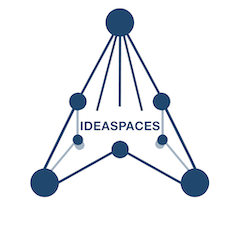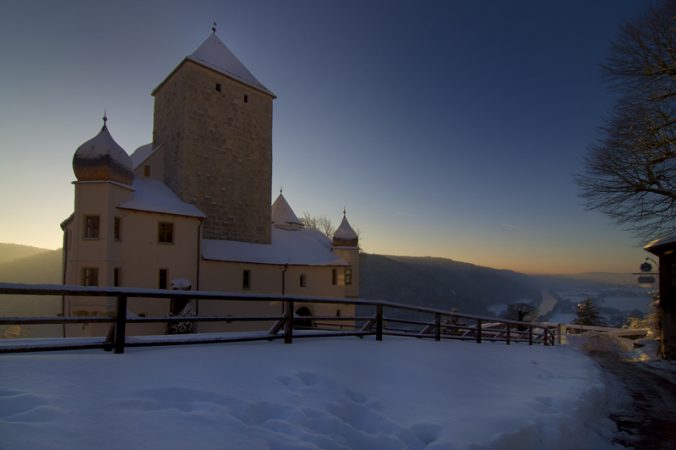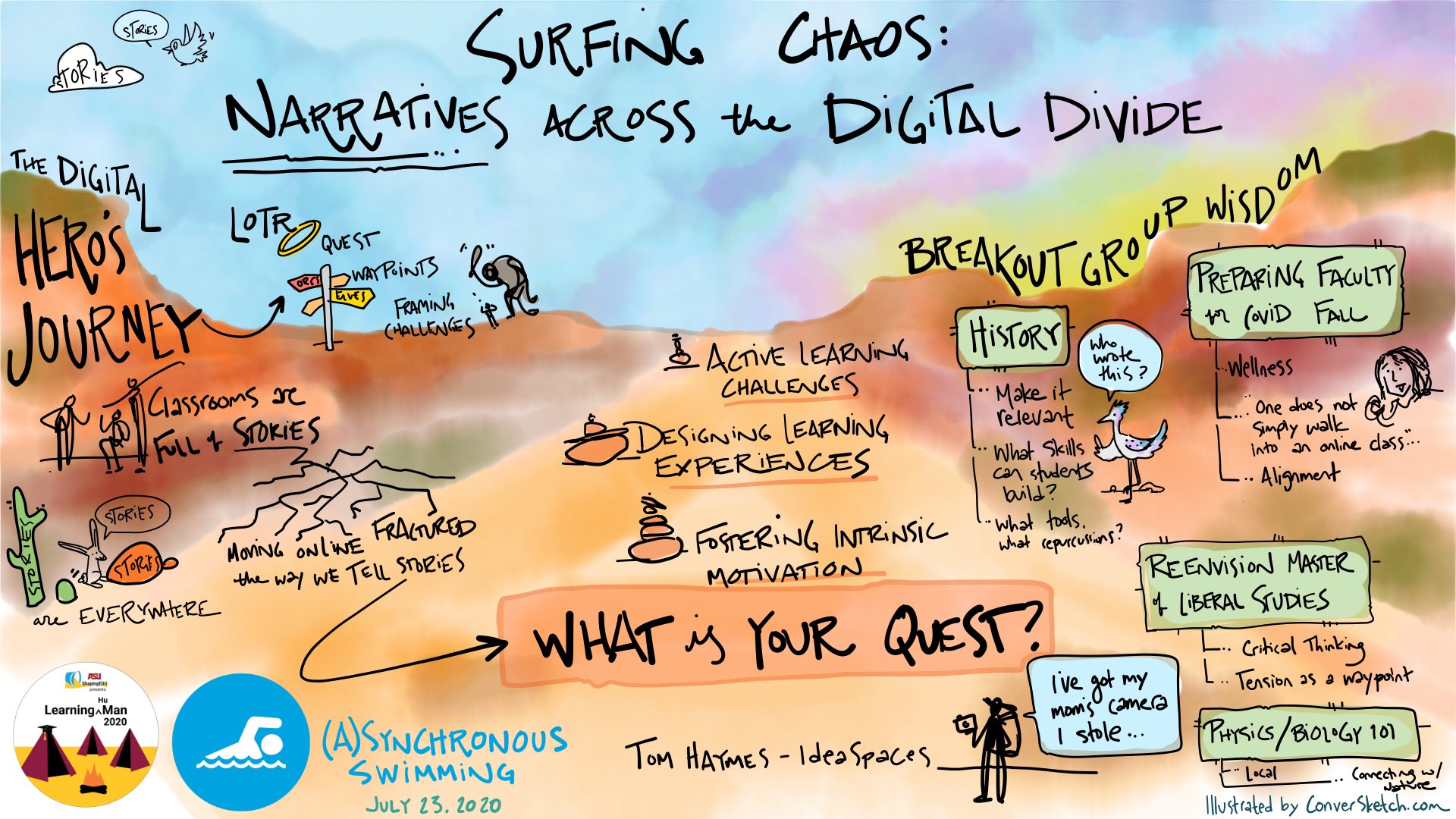It’s a scary world out there right now. Pandemics, politics, and economics form their own kind of “PPE” for which we have to all gird ourselves with a different kind of PPE (Personal Protective Equipment) than those who are fighting Covid. Like those heroes, we have to face our fears and slay often unseen and ephemeral monsters. And like them our greatest enemy is ourselves and the systems human societies have created. To face this enemy we need a group of diverse heroes, each with a small piece of the map forward in their possession. That is exactly what came together last week at Learning[Hu]man, a summer camp unlike any I’ve ever been to before (or was it?).
The subject of monsters and adventuring seemed to come up again and again this week. This is ironic because the first time I was exposed to Dungeons and Dragons was at a summer camp in West Texas in 1978. That was, ironically, also the first time I was confronted by the real monsters our society struggles with even today. One day a counselor intervened to stop a group of locals from the neighboring town who were harassing some teenage female campers. That counselor happened to be black. That night a long line of cars and trucks streamed into the camp to send a message. We called the sheriff. He was with them. A hundred scared teenagers spent the night in the camp mess hall. Fortunately, the counselor they were seeking had returned to Austin and the night passed without further incident.
I have been reflecting back on that night a lot lately. The last six months have felt a lot like being confined to a mess hall while a messy world swirls around outside the door and the forces of reaction make forays into the camp of civilization. Unfortunately, in our case, the monsters aren’t going home. There are too many and they live among us.
ShapingEDU has always been a community shaped by optimism. Optimism, not for technology, but for the human creativity it unleashes. This week that community resembled nothing more than an adventuring party assembling for perhaps our greatest challenges. If there was a consistent theme that emerged it was that the human challenges far outweighed the technology ones. It became clear that it was time to strap on our magic swords and dust off our spell books to slay the human prejudices that perpetuate inequities in both our society and within the very educational institutions that we have devoted our lives to.
Like every adventure party I’ve ever been a part of there was the initial meeting of the minds, usually over a beer at Lev Gonick’s (aka Mike Callahan’s) virtual tavern. New networks were formed and maps were laid out. Bryan Alexander quickly asked us to imagine what kind of monsters we might face and taught us how to challenge them. The campfires on Digital Equity, Social, and Racial Justice and Digital Education and Tribal Rights showed us some of the real monsters of inequity and access that lock out whole groups of potential wizards whose voices are stifled before they learn their first spell, depriving us of an army of creative forces. My own session took us questing and showed how we could see all kinds of stories as a form of hero’s quest and, perhaps most importantly, that others are likely to perceive those quests quite differently. Our scouting parties reimagined quests from a History class, to preparing our faculty for Covid Fall, to reimagining a Liberal Arts graduate program. You can see their work here.
One of the key things I took away from my early years with Dungeons and Dragons was an understanding of the essential nature of good systems design. As Dungeon Master (DM) it was your job to craft a system that channeled the quest. DMs forget at their peril that the system has to work for the world to make sense. On Friday night Ruben Puentedura turned us into Dungeon Masters by asking us to create systems to overcome the plague of black swans raining down upon our kingdoms. His parties were given a choice of ten alternate future university spells and then assigned a second. He then tested our systems by throwing an unexpected swan into our midst. This generated creative explosions that forced us to pull together strands from our week of preparing and training. Common strands that ran through virtually all of the responses were the strengths to be found through diversity and community augmented by the magic of our technology and imaginations. We quickly saw through how these could guide us through the whitest of waters.
At every step along the way this week it was clear that the demons that we face, collectively and individually, are distinctly human. Nature, whether in the form of disease or climate, merely acts as a catalyst for exposing the cracks in our systems, from poverty to educational access to a lack of inclusion. It’s funny how our societies resemble a bad (pre-CGI) science fiction film in which all the aliens and monsters are really humans in disguise.
Taking on these systemic and conceptual demons requires a hard look in the mirror and the ability to try on different faces. Technology provides the mirror and the masks. It can be used to hide but it can also be used as a powerful “seeing” spell. Digital technology is at its root about being able to see, whether that be in the form of crunching vast swathes of complex data in order to see patterns in the spread of disease or rethinking systemic paradigms through realistic simulations that force different lenses upon us. This week at Learning[Hu]man was fundamentally about seeing the world as it is and what it can be. It showed that as a group we have powerful magic including spells such as “Light,” “Network,” and “Show” that are critical in understanding the nature of the systemic monsters we face. At the end of the day, our community recognizes that the power of our magic is to give that magic to others.
This week we assembled a diverse group of adventuring parties, ready to ride forth and tame the systemic dragons. For in a final irony, it is clear that the systems themselves are a technology. They are dragons to be ridden, not swans to be slain. Our systems need to have a technological and conceptual “Light” spell thrown upon them to reveal them as Ourselves, to be reconstructed as only we can imagine them to be.


